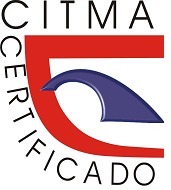Digital Transformation Taxonomy
Keywords:
transformación digital; taxonomía; habilitadores de la transformación digital; experiencia del usuario; nuevos modelos de negocioAbstract
Digital transformation is emerging as a topic of interest not only in scientific communities, but in organizational dynamics as practices used incrementally, which are subject to the pressures imposed by disruptive technologies, the new business models that are manifested throughout the value chain, and the custom demands of consumers in a hyperconnectivity environment. Understanding the digital transformation from its components, the ways to adopt it and its main expected impacts, constitute in this context an imperative. Based on a literature review, this article proposes a Digital Transformation Taxonomy, by using on a concept map. As a result, it formalizes Digital Transformation conceptual frameworks based on a pattern, which is able to adapt itself for the concept evolvement.
References
Al-Ruithe, M., Benkhelifa, E., & Hameed, K. (2018). Key issues for embracing the Cloud Computing to adopt a digital transformation: A study of Saudi public sector. Procedia computer science, 130, 1037-1043.
Andriole, S. J. (2017). Five myths about digital transformation. MIT sloan management review.
Berghaus, S., & Back, A. (2016). Stages in Digital Business Transformation: Results of an Empirical Maturity Study. MCIS, 22.
Bockshecker, A., Hackstein, S., & and Baumöl, U. (2018). Systematization of the term digital transformation and its phenomena from a socio-technical perspective – A literature review. Research Papers. 43.
Centelles, M. (2005). Taxonomías para la categorización y la organización de la información en sitios web. Revista Académica sobre Documentación Digital y Comunicación Interactiva(3). Obtenido de https://www.upf.edu/hipertextnet/numero-3/taxonomias.html
Dengler, K., & Matthes, B. (2018). The impacts of digital transformation on the labour market: Substitution potentials of occupations in Germany. Technological Forecasting and Social Change,, 137(C), 304-316.
Foerster-Metz, U. S., Marquardt, K., Golowko, N., & Kompalla, A. &. (2018). Digital Transformation and its Implications on Organizational Behavior. Journal of EU Research in Business, 2018(DOI: 10.5171/2018.340873), Article ID 340873, 14 pages.
Gebayew, C. H. (2018). A Systematic Literature Review on Digital Transformation. 2018 International Conference on Information Technology Systems and Innovation (ICITSI). IEEE (pp.260-265) . Bandung - Padang.
Gupta, S. (2018). Organizational Barriers to Digital Transformation. STOCKHOLM: KTH ROYAL INSTITUTE OF TECHNOLOGY.
Hartl, E., & Hess, T. (2017). The Role of Cultural Values for Digital Transformation: Insights from a Delphi Study. AMCIS 2017 Proceedings, (págs. 1-10). Boston.
Hemerling, J., Kilmann, J., Danoesastro, M., Stutts, L., & Ahern, C. (2018). It’s not a digital transformation without a digital culture. BCG. Recuperado el 25 de January de 2020, de Boston Consulting Group.
Hinings, B., Gegenhuber, T., & Greenwood, R. (2018). Digital innovation and transformation: An institutional perspective. Information and Organization. doi:https://doi.org/10.1016/j.infoandorg.2018.02.004
Ibarra, D., Ganzarain, J., & Igartua, J. I. (2018). Business model innovation through Industry 4.0: A review. Procedia Manufacturing, 22, 4-10.
Ismail, M. H. (11 de 2017). Digital business transformation and strategy: What do we know so far? Recuperado el 26 de 12 de 2019, de https://cambridgeservicealliance.eng.cam.ac.uk/resources/Downloads/Monthly%20Papers/2017NovPaper_Mariam.pdf
Jafvert, A., & Gustafsson, C. P. (2019). Digital Transformation in Digitally Mature Organisations: Managers' perspectives on challenges in progressing in digital maturity. Lund University: Master´s Thesis.
Kutzner, K., Schoormann, T., & Knackstedt, R. (2018). DIGITAL TRANSFORMATION IN INFORMATION SYSTEMS RESEARCH: A TAXONOMY-BASED APPROACH TO STRUCTURE THE FIELD. Twenty-Sixth European Conference on Information Systems. Portsmouth, UK: ECIS2018.
Mergel, I., Edelmann, N., & Haug, N. (. (2019). Defining digital transformation: Results from expert interviews. Government Information Quarterly, 36(4). doi: https://doi.org/10.1016/j.giq.2019.06.002
Morakanyane, R., Grace, A., & O´Reilly, P. (2017). Conceptualizing Digital Transformation in Business Organizations: A Systematic Review of Literature. 30TH BLED ECONFERENCE: DIGITAL TRANSFORMATION – FROM CONNECTING THINGS TO TRANSFORMING OUR LIVES (págs. 427-443). Bled, Slovenia: University of Maribur. doi:https://doi.org/10.18690/978-961-286-043-1.30
Muñoz, L., & Avila, O. (2019). A Model to Assess Customer Alignment Through Customer Experience Concepts. Lecture Notes in Business Information Processing, 339-351.
Nwaiwu, F. (2018). Review and Comparison of Conceptual Frameworks on Digital Business Transformation. Journal of Competitiveness., 10(3), 86–100. doi:https://doi.org/10.7441/joc.2018.03.06
Pappas, I. O., Mikalef, P., Giannakos, M. N., Krogstie, J., & Lekakos, G. (2018). Big data and business analytics ecosystems: paving the way towards digital transformation and sustainable societies. Information Systems and e-Business Management, 479-491.
Parviainen, P., Tihinen, M., & Kääriäinen, J. a. (2017). Tackling the digitalization challenge: how to benefit from digitalization in practice. International Journal of Information Systems and Project Management, 5(1), 63-77.
Reis, J., Amorim, M., 0 Melão, N., & Matos, P. (2018). Digital transformation: a literature review and guidelines for future research. World conference on information systems and technologies (págs. 411-421). Springer, Cham.
Salmela, H., & Rousseau, P. (2019). Role of Dynamic Capabilities for Digital Transformation: Developing Dynamic Capabilities Essential for Digital Transformation. Turku: University of Turku.
Sánchez, M. A. (2017). A framework to assess organizational readiness for the digital transformation. Dimensión Empresarial, 15(2), 27-40. doi:http://dx.doi.org/10.15665/rde.v15i2.976
Schwertner, K. (2017). Digital transformation of business. Trakia Journal of Sciences, 15(1), 388-393. doi:10.15547/tjs.2017.s.01.065
Shahiduzzaman, M., & Kowalkiewicz, M. (2018). Digital organisation: A value centric model for digital transformation. Academy of Management Global Proceedings, Surrey(2018). doi:https://journals.aom.org/doi/10.5465/amgblproc.surrey.2018.0047.abs
Sousa, M. J., & Rocha, Á. (2019). Digital learning: Developing skills for digital transformation of organizations. Future Generation Computer Systems, 327-334.
Vendrell-Herrero, F., Parry, G., Bustinza, O. F., & Gomes, E. (2018). Digital business models: Taxonomy and future research avenues. Strategic Change, 27(2), 87-90. doi:10.1002/jsc.2183
Verhoef, P., Broekhuizena, T., Bartb, Y., Bhattacharyaa, A., & Qi-Donga, J. (2020). Digital transformation: A multidisciplinary reflection and research agenda. Journal of Business Research. doi:https://doi.org/10.1016/j.jbusres.2019.09.022
Verina, N., & Titko, J. (2019). Digital transformation: conceptual framework. International Scientific Conference,CONTEMPORARY ISSUES IN BUSINESS, MANAGEMENT AND ECONOMICS ENGINEERING’2019. Vilnius, eISSN 2538-8711. ISBN 978-609-476-161-4 / eISBN 978-609-476-162-1.
Vermesan, O., Bröring, A., Tragos, E., Serrano, M., & Bacciu, D. e. (2017). Internet of robotic things: converging sensing/actuating, hypoconnectivity, artificial intelligence and IoT Platforms. En J. B. Ovidiu Vermesan, Cognitive Hyperconnected Digital Transformation: Internet of Things Intelligence Evolution (págs. 97-155). River Publisher.
World Economic Forum. (2018). The future of Jobs Report 2018. Geneva: WEF.
Zaoui, F., & Souissi, N. (2018). Onto-Digital: An Ontology-Based Model for Digital Transformation’s Knowledge. I.J. Information Technology and Computer Science(12), 1-12. doi:DOI: 10.5815/ijitcs.2018.12.01
Downloads
Published
Versions
- 2021-10-02 (2)
- 2020-04-21 (1)
How to Cite
Issue
Section
License
Copyright (c) 2020 Tatiana Delgado Fernández

This work is licensed under a Creative Commons Attribution-NonCommercial 4.0 International License.













